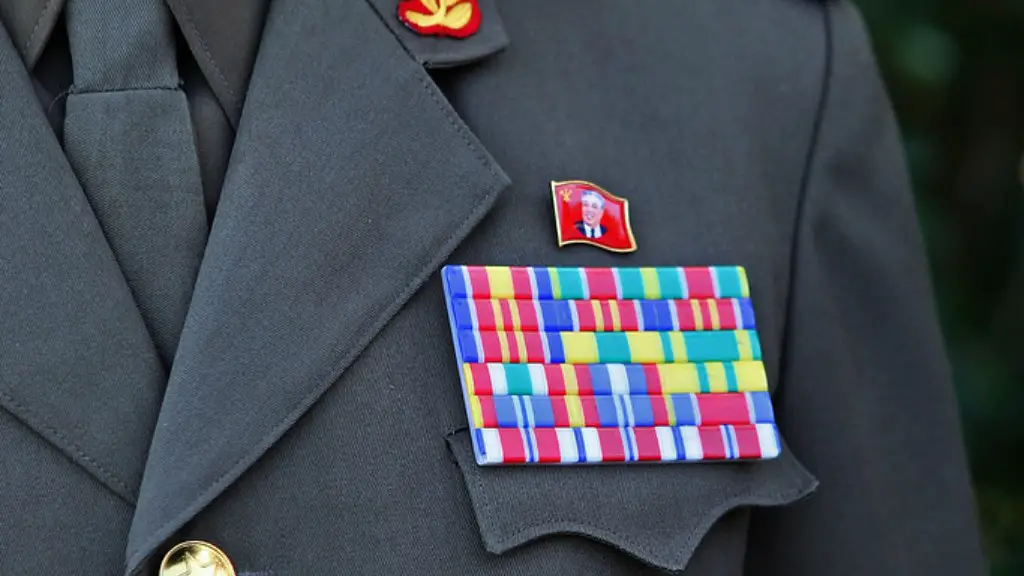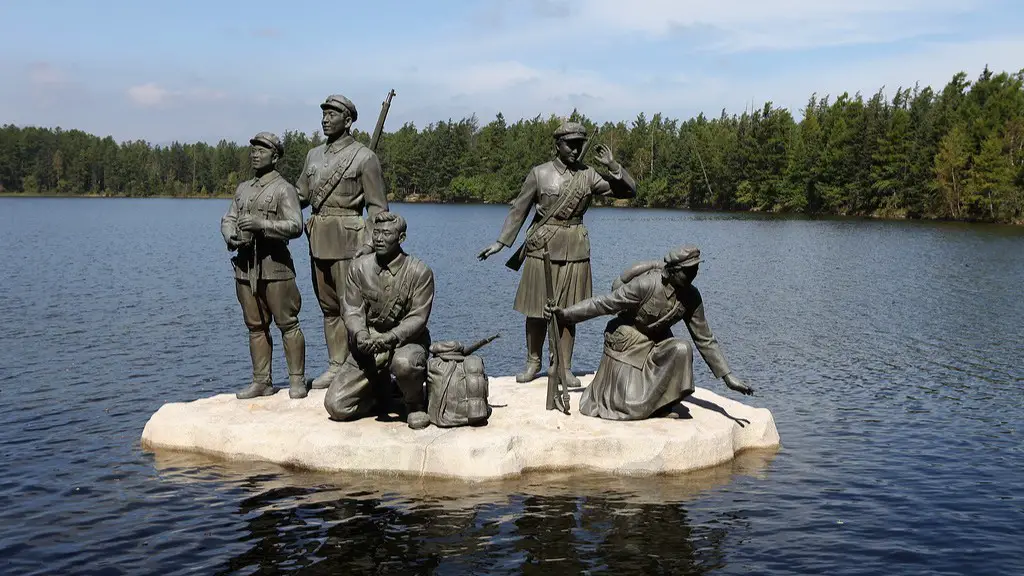Geography and Size of North Korea
North Korea is known to be the world’s most mysterious and closed country. It is officially known as the Democratic People’s Republic of Korea and is located in East Asia, bordering China, on the north, and South Korea on the south. North Korea is about 120,540 square kilometres in total land area – that’s around the size of England and Scotland combined.
The North Korean landscape is made up of mostly mountainous terrain, the peaks and plateaus are largely isolated from one another. North Korea’s highest peak is mount Paektu, it stands at 2,744 metres above sea level and is of great cultural and religious importance to Koreans. To the north and east of the country there is a great deal of coastline running up its eastern side, with various inlets and coastal plains.
Demographics and Population
North Korea is a densely populated country with a population of approximately 25 million people. The majority of the population lives in rural areas, and the rest in urban settings. According to demographic data, Pyongyang is the largest and most populous city with a population of approx. 3 million people, while Hamhung is the second largest with a population of approx. 1.5 million people.
The capital city of Pyongyang dominates the country’s infrastructure, due to its higher level of wealth, vast number of universities and institutions of higher learning, and its cultural, political and economic influence. The North Korean economy is a centrally planned economy, largely driven by mining (about 20% of GDP), manufacturing and agricultural production.
Education and Education System in North Korea
The education system in North Korea is heavily centralized and divided into three levels: pre-school, primary and secondary. Primary education is compulsory, and the literacy rate is among the highest in the world. North Korean students start to receive instruction in the Korean language, science and mathematics from a young age, and have frequent mandatory tests until they reach the age of 18.
The education system focuses heavily on propaganda and patriotic exercises, with limited access to technology or the internet. Additionally, higher education is not always open to citizens, and only those with a large level of loyalty to the state can attend universities and colleges.
Culture and Social Structure in North Korea
The culture in North Korea is more Hermit Kingdom than Confucianist, with a strong emphasis on the collective and obedience, rather than the individuality of the individual found in Confucianism. North Korea is a predominantly Confucianist country, inheriting their culture from ancient China. Over time, traditional aspects of Korean culture, such as Buddhism and Shamanism, have also been incorporated.
The social structure of North Korea is based on various social classes. The elite, the upper and middle classes, the lower-middle classes and the working class. Generally, the higher one’s social class, the easier it is to gain access to political power and resources like education, employment, and housing.
Religion and Religious Beliefs in North Korea
Religion in North Korea is largely discouraged and largely nonexistent. North Korea has been declared the “World’s Most Religious North Korea” and it is illegal to have a religious gathering in North Korea. Most North Koreans follow beliefs from traditional Korean religions, such as shamanism, which dates back to antiquity, and Buddhism. There are some Christians who practice their faith in North Korea, but their number is thought to be very small.
A recent US State Department report claimed that North Koreans who have been repatriated from China after attempting to escape the country have been subjected to religious persecution.
Politics and Government
The political system in North Korea is based on the Juche Idea, which emphasizes self-reliance and primary reliance on the collective leadership of the Kim family. The country is a single-party state, with the Korean Workers’ Party (KWP) as the ruling party and the Supreme Leader at its head.
Political freedom is non-existent in North Korea, and human rights violations are extensive. Political power lies with the government and the Party, and citizens are expected to adhere to their decisions and instructions. The President and Premier of the country are both elected by the Party Central Committee, while the Supreme Leader holds considerable sway over all state affairs.
Economy and Economic Sanctions
North Korea is a highly isolated country and its economy is predominantly based on agricultural production and mining. The most important resources for North Korea are coal, iron ore, gold, magnesite, zinc and tungsten.
The North Korean regime is known to be one of the most corrupt in the world, and economic sanctions have been imposed by numerous governments in an attempt to halt the proliferation of its nuclear weapons program and human rights abuses.
China is one of the main suppliers of trade and economic aid to the country, and is an important partner when it comes to humanitarian aid and economic assistance. Despite sanctions, the economy has seen some small improvements in recent years, although it still remains highly fragile.
International Relations and Global Reputation
North Korea is an internationally isolated nation and has rarely interacted with other countries. It is an adversary of the United States, and has strong ties with China and Russia.
In recent years, there has been an increase in diplomatic activity and the country has opened its borders to tourists. Although relations with the United States remain tense, North Korea has made moves towards improving relations with South Korea and the international community. The country continues to be seen by the international community as a hostile nation, largely due to its controversial nuclear weapons program.
Media and Propaganda
The North Korean government is thought to run one of the most comprehensive propaganda and censorship systems in the world. The media is heavily censored and information is limited to state-approved stories that promote unity and loyalty to the government and its leaders.
The official news agency, Korean Central News Agency (KCNA), is the only media outlet in North Korea and its primary purpose is to spread government propaganda and control the flow of information.
There are no independent media outlets in North Korea and all media, including radio and television, is tightly controlled and monitored by the government. The internet is also heavily censored and access is limited to the country’s ruling elite.
Stability and Future of North Korea
It is hard to predict the future of North Korea. Although the country appears to be moving towards economic reform and tackling some of its human rights issues, there are still many problems to be dealt with.
The government remains authoritarian and the use of fear tactics, censorship and repression continue to be widely used. Economic sanctions have made it difficult for North Korea to develop and the country remains largely dependent on aid from China and other countries.
The current situation in the country means that it is unlikely that political or economic reform will happen in the near future. Nonetheless, many hope that international pressure, aid and education programs will help to improve the lives of the citizens of North Korea.


